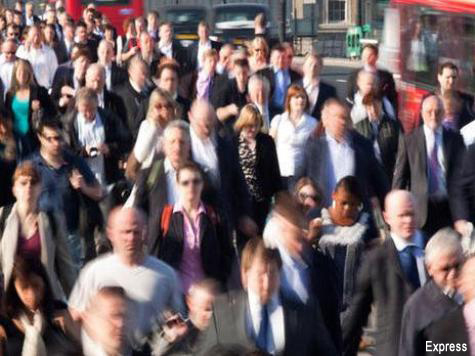Mass immigration into Britain could lead to failing hospitals, overcrowded classrooms, water shortages and the need for hundreds of new cities, a new report warns.
The report by think-tank Civitas found that heavy immigration will have an overall negative impact in living standards as any economic benefits will be outweighed by extreme pressures on amenities.
Written by Robert Rowthorn, Emeritus Professor of Economics at the University of Cambridge, the report says that particular strain will be placed on schools, housing and hospitals.
The report also found that while overall Gross Domestic Product (GDP) could rise, the effects on GDP Per Capita would be minimal.
Mr Rowthorn said: “Unrestrained population growth would eventually have a negative impact on the standard of living through its environmental effects such as overcrowding, congestion and loss of amenity,” he writes.
“Such losses would ultimately outweigh the small gain in average wages apparently resulting from mass immigration.”
Figures from the Office for National Statistics suggest that the UK population will grow by 20 million over the next 50 years, and 29 million over the next 75 – and that is from immigration alone.
Rowthorn says that any potential benefits from immigration stem mainly from its ability to help rejuvenate the ageing UK population, but he warns: “If many of the immigrants fail to get jobs, or if they end up in low skill jobs or displace native workers, large-scale immigration will have a negative impact on GDP per capita and on government finances. Thus, the impact could be positive or negative but either way it is unlikely to be very large.
“The only thing that is certain is that immigration on the present scale, if it continues, will lead to much faster population growth and a much larger total GDP than would otherwise be the case, with consequent pressure on infrastructure and the environment.”
The report adds that such an explosion in population could also cause water shortages in some parts of the country, saying that some “water-stressed regions of England and Wales” – particularly the south east of England – were comparable to dry countries such as Spain and Italy.
“Population growth is identified in this report as a major source of strain on water resources,” the report says.
Other resources will also be it. It says: “Population growth may lead to housing shortage and pressure on public facilities such as schools, hospitals and the transport infrastructure.
“Such problems can in principle be handled by building more homes, enlarging existing schools and hospitals or building new ones, widening existing roads or building new ones, and increasing the capacity of the rail network.
“This would not be a once-and-for-all investment programme. Sustained population growth would require an ever increasing number of homes, hospitals schools and transport facilities.”
A Home Office Spokesman told the Daily Telegraph: “This report shows how vital it was for this Government to reverse the unfettered immigration policy of the past and why we must carry on our reforms to build an immigration system which works in the national interest.
“It is clear that uncontrolled, mass immigration makes it difficult to maintain social cohesion, puts pressure on our public services and forces down wages for people on low incomes.
2That is why we are building an immigration system that is fair to British citizens and legitimate migrants, that is tough on those who abuse the rules or flout the law, and that ensures people come to the UK for the right reasons — to work hard and contribute to our economy and society.”

COMMENTS
Please let us know if you're having issues with commenting.